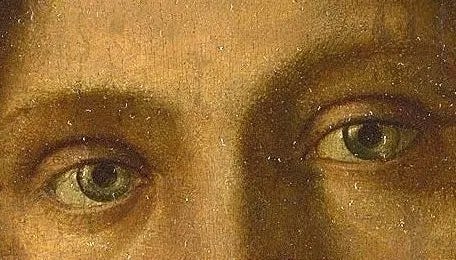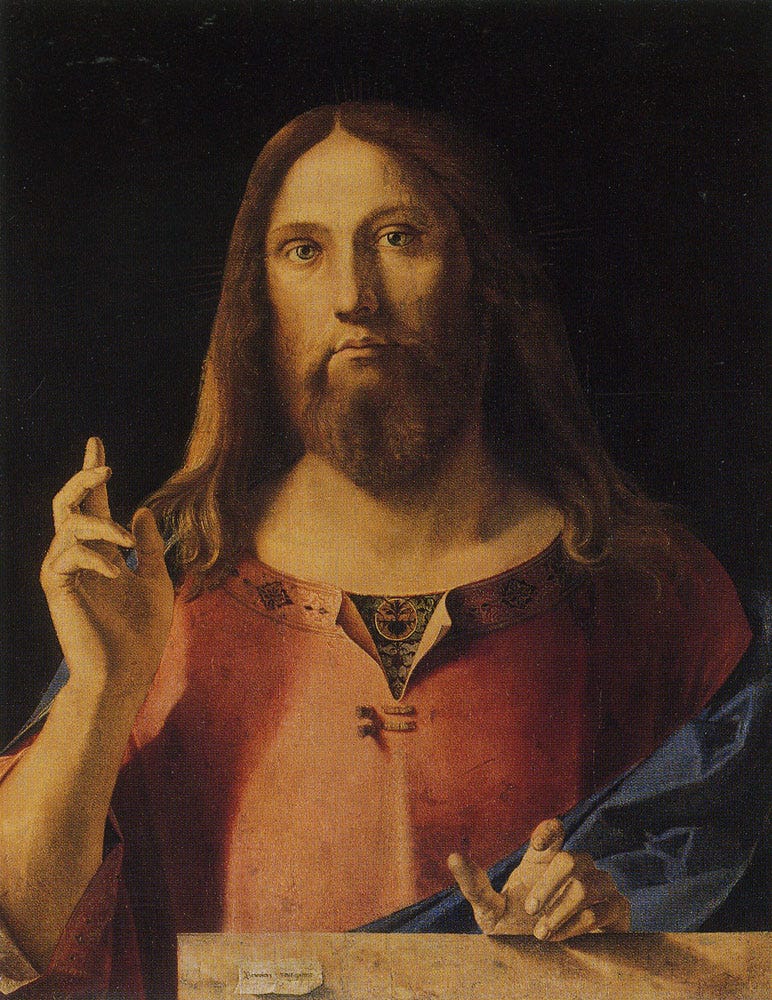“Peace I leave with you;
my peace I give to you.
Not as the world gives do I give it to you.
Do not let your hearts
be troubled or afraid.”
John 14:27
A homily for the Sixth Sunday of Easter— delivered May 25th, 2025.
We are living in an age of anxiety. More people are reporting that they’re more anxious than before, and young people are the most worried of all. People cite current events, the economy, politics, and violence among the causes for their anxiety, but there’s also this general sense of unease that the polling and the studies just can’t show. That feeling in your gut that things just aren’t right.
I don’t think you need to be an expert to diagnose the causes. There are many, but let me suggest two.
First, we know too much, and we know it too fast. Electronic stimulation is pumped into our veins like we’re attached to an IV, and we’re addicted to it. The 24-hour news cycle and the constant assault from electronic devices are killing us. We were designed to raise children and provide for our families and praise God, not monitor the news of the world or argue online with strangers. We just can’t process it all.
The second will be obvious for those of you sitting here today, and it’s those who are not sitting here today. In other words: those who no longer believe or never did. It’s the decline of faith. And the world didn’t just “lose” faith: the powers of the world actively try to crush it. There’s been an increasing assault upon belief for a long time. If something is relentlessly mocked and marginalized and undermined, those whose beliefs are lukewarm can find themselves losing what little faith they had. I did, and it took a lot to get it back.
But…I have some good news. I think the tide is turning. The church has seen a remarkable number of conversions around the world this year. The emptiness of so much in modern life is finally starting to dawn on people. Mankind can only reject God for so long, because we are meant for God: it’s that God-shaped hole in the heart of each and every one of us, and when we fill it up with things that aren’t God, it doesn’t feel right and we know it.
But there’s an answer for that: we just heard it. It’s a verse you should remember, so if you want to take out your phones and make a note: it’s John 14:27. Print it out and put on your refrigerator because it’s what we all need right now.
Jesus says, “Peace I leave with you; my peace I give to you. Not as the world gives do I give it to you. Do not let your hearts be troubled or afraid.”
That’s a lot for one verse. Let’s start at the end: do not let your hearts be trouble or afraid. Both the Old and New Testament tell us not to be afraid over and over. Jesus says it about a dozen times. Paul says it. It’s found throughout the Psalms. It’s the greeting of every angel.
It was also the first words of Pope St. John Paul II when he spoke to the people after being elected: Be not afraid. Many of us still remember what a powerful moment that was in the middle of the Cold War, when there was also a lot of fear. Reflecting on it later, John Paul said people needed to know that quote Someone exists who holds in His hands the destiny of this passing world … And that Someone is Love.
And then, two weeks ago, our new holy father Leo came onto the balcony and his first words to us were: “Peace be with all of you. The peace of the Risen Christ.” A wonderful introduction.
Peace is not the absence of conflict. There are people from my life who I’m not fighting with anymore, but we’re not at peace. Human nature, being what it is, world peace isn’t really peace either. It’s just the absence of war. And that kind of peace is very fragile.
The peace offered by Christ is not the peace of the world. It’s an inward peace. It’s what the Hebrew word Shalom means. It’s a sense of spiritual well being. It flows out the sacred heart of Christ as a gift from the Father, and comes to dwell in our hearts as the presence of the Holy Spirit.
But it’s even more than that, because peace in the Old Testament is linked to the covenant, to salvation. The prophets speak of the messiah bringing peace. It’s one of the names Isaiah gives the Christ: Prince of Peace. And Ezekiel says, “I will make a covenant of peace with them.” It’s a promise. A promise to us.
So Jesus gives us peace, but it’s a different kind of peace. It’s not just getting along with each other, because Jesus also says Not as the world gives do I give it to you. His peace is deeper. It’s peace with God. And as we know, peace with God is going to have a cost. It may tear us away from things in this world that are pleasing to us, but not to God. And it may put us as odds with a world that wants to insist on its ways, over God’s ways.
So in a few minutes I will say to all of you Let us offer each other a sign of peace. That’s something much bigger than a handshake or a wave. It’s at the heart of the liturgy, just before we receive the eucharistic body of Christ, because it’s a sign that the Holy Spirit is in us, and Christ’s peace is with us, and that’s bigger than all the fears and all the anxieties that plague us. It’s a promise that God’s got this, and we don’t need to be afraid.
Peace be with you.






